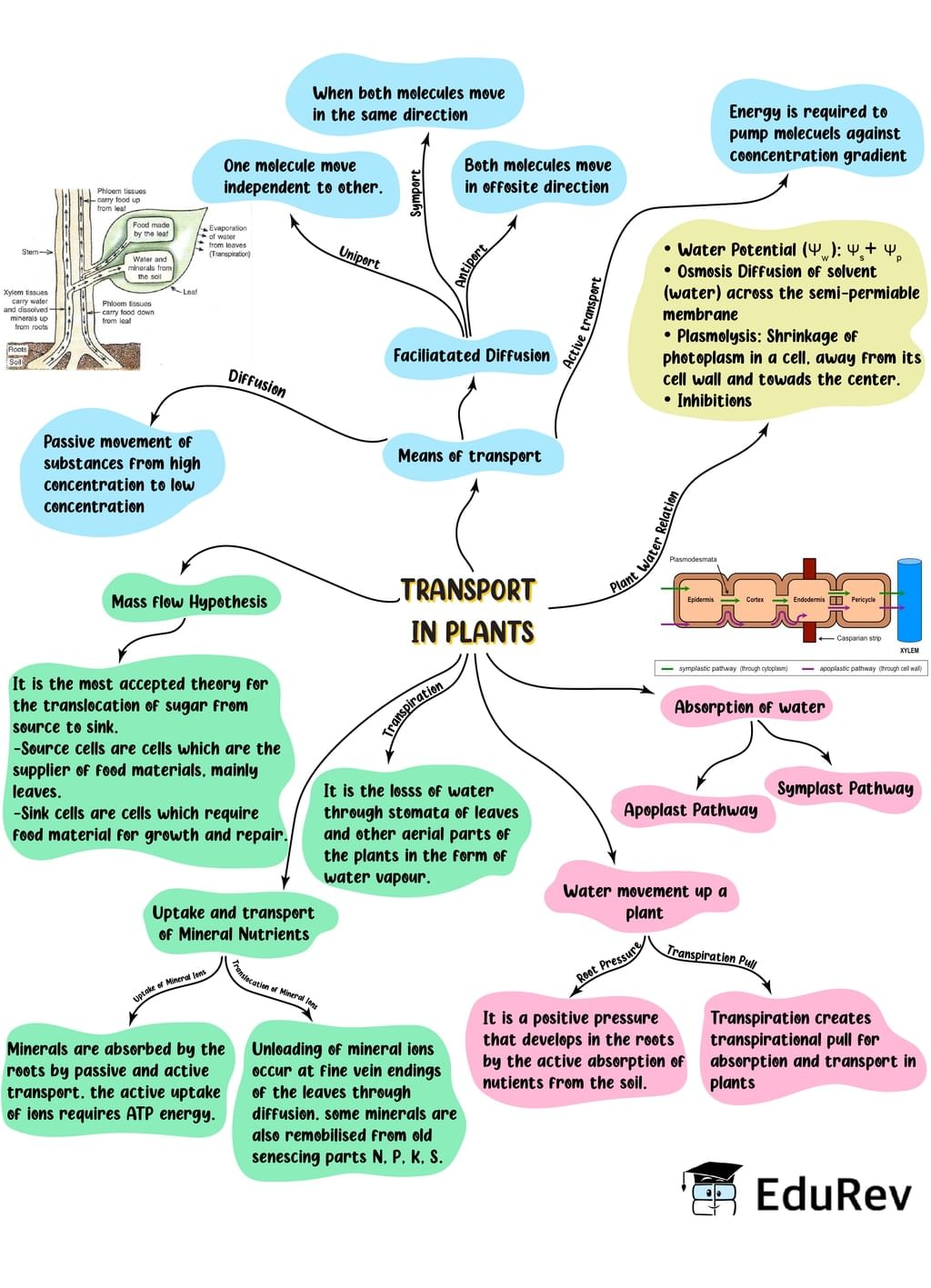Class 11 Exam > Class 11 Notes > Subject-Wise Mind Maps for Class 11 (Science) > Mind Map: Transport in Plants (Old NCERT)
Mind Map: Transport in Plants (Old NCERT) | Subject-Wise Mind Maps for Class 11 (Science) PDF Download

The document Mind Map: Transport in Plants (Old NCERT) | Subject-Wise Mind Maps for Class 11 (Science) is a part of the Class 11 Course Subject-Wise Mind Maps for Class 11 (Science).
All you need of Class 11 at this link: Class 11
FAQs on Mind Map: Transport in Plants (Old NCERT) - Subject-Wise Mind Maps for Class 11 (Science)
| 1. What is the main function of transport in plants? |  |
Ans. The main function of transport in plants is to move water, nutrients, and other important substances throughout the plant's tissues. This process is essential for the plant's growth, development, and survival.
| 2. How does water move through a plant? |  |
Ans. Water moves through a plant through a process called transpiration. Transpiration occurs when water is lost from the plant's leaves through tiny pores called stomata. As water is lost, it creates a suction force that pulls water up from the roots, through the stem, and into the leaves.
| 3. What are the two types of transport in plants? |  |
Ans. The two types of transport in plants are the xylem and the phloem. The xylem is responsible for transporting water and minerals from the roots to the rest of the plant. The phloem, on the other hand, transports sugars, hormones, and other organic molecules throughout the plant.
| 4. How are nutrients transported in plants? |  |
Ans. Nutrients are transported in plants through the process of active transport. Active transport involves the movement of molecules against their concentration gradient, requiring energy. The roots of the plant actively take up nutrients from the soil and transport them to the rest of the plant through the xylem and phloem.
| 5. What factors affect the rate of transpiration in plants? |  |
Ans. Several factors can affect the rate of transpiration in plants. These include temperature, humidity, wind speed, and light intensity. Higher temperatures, lower humidity, stronger winds, and higher light intensity generally increase the rate of transpiration, while the opposite conditions decrease it.
Related Searches

















